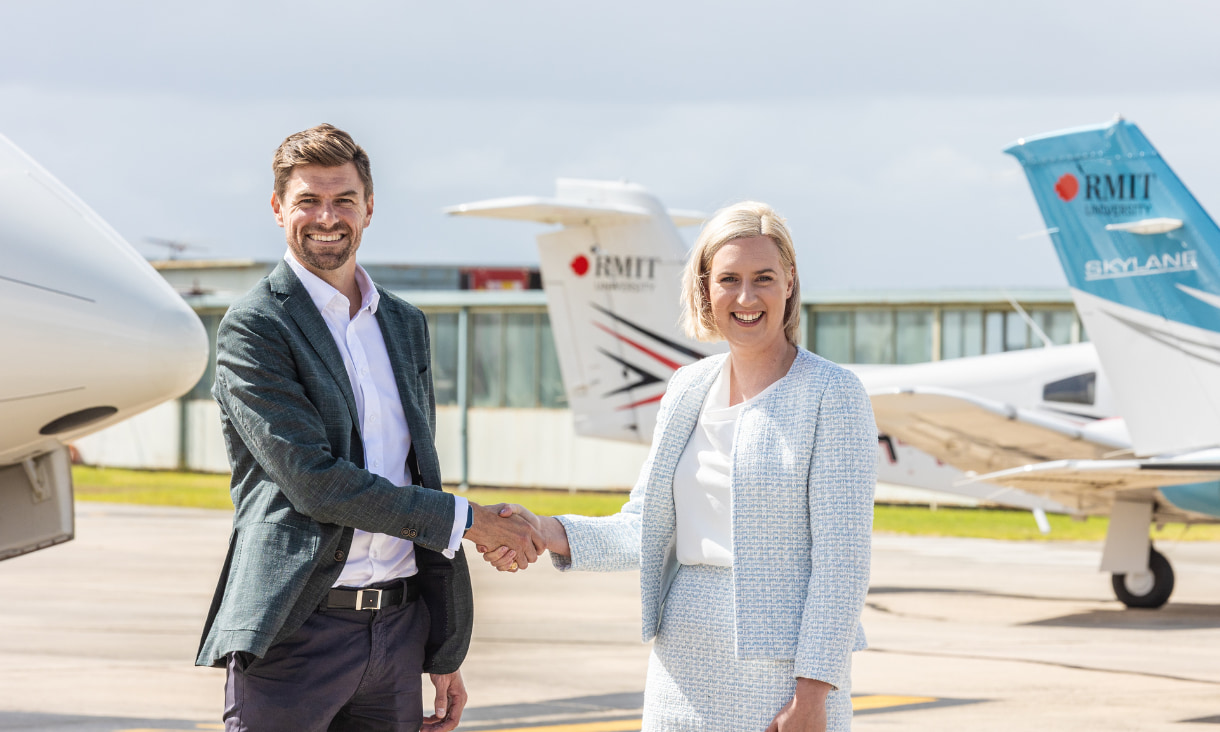RMIT Aviation Academy Partners with Leidos for Aviation Scholarship Initiative
Leidos Australia and RMIT University have launched a new aviation scholarship that will support budding pilots to complete their studies and commence their flying career.
Through RMIT’s Aviation Academy, Leidos is providing $120,000 worth of scholarship funding which will be available to final year students completing a degree in Aviation at RMIT.
RMIT Aviation Academy Director Lea Vesic said the Aviation Academy was thrilled to be partnering with Leidos, to help new pilots launch their aviation careers.
“The Aviation Green Paper released last year highlighted the challenges the Australian aviation industry is facing with skills shortages in the sector, and the critical demand for skilled pilots over the next 20 years.
“As a national leader in aviation education and with the largest university owned aviation fleet in the country, the RMIT Aviation Academy is well placed to respond to these challenges and will play a critical role in training the next generation of aviators.
“Partnerships like this are critical not only for supporting new pilots to enter the workforce but to make sure they develop the skills and can obtain the practical experience required to ensure they are job ready.
“The scholarship funding from Leidos includes support for recipients to complete additional training, focusing on the specialised pilot skills Leidos requires for its unique and diverse operations, meaning students conclude their training ready for a career in special mission flying,” Ms Vesic concluded.
The aviation scholarship builds on Leidos and RMIT’s existing relationship and sets up a runway for further opportunities for collaboration.
 This partnership will support budding pilots in starting their flying careers. (L-R: James Woodhams and Lea Vesic)
This partnership will support budding pilots in starting their flying careers. (L-R: James Woodhams and Lea Vesic)Leidos Airborne Solutions Vice President James Woodhams said Leidos was committed to supporting future workforce development in a sector facing a significant skills shortage.
“We know that there are high barriers to entry to becoming a pilot, including the cost associated with flight training. We want to provide students with not only financial support, but with opportunities to learn about the flying experiences available to them beyond airline careers.
“We do very specialist flying to save lives and protect national interests, and we want to contribute to building the skills required for these missions.”

